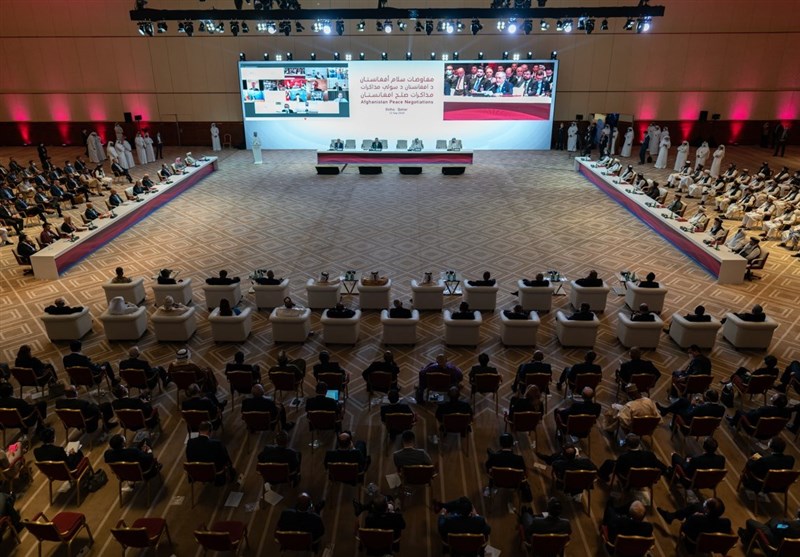In an interview with the website of the Strategic Council on Foreign Relations, Pir Mohammad Mollazehi commented on the Afghan peace talks that have been going on for three months between the government and the Taliban delegations in Doha, Qatar, and said: The agreement reached between the Taliban and the Kabul government is a 21-article agreement in which details of the issues that are expected to be discussed in the main negotiations have been raised.
Mollazehi continued: But it is not very clear to what extent the Taliban are prepared to conclude the negotiations and accept a share in power. There are still many ambiguities on this issue and there is not much optimism about the Taliban’s stance inside Kabul.
Saying that perhaps the Taliban may prolong the negotiation process or obstacles would be created to the talks, Mollazehi said: But in any case, those talks between the Taliban and Kabul are being considered a step forward. The same issue that the Taliban did not previously agree to talk about the main topics but today they have accepted it has been taken as a good omen by the Kabul government and they consider it as an opening in the negotiation process.
The expert on Subcontinent affairs, pointing to the fact that military operations are still continuing in Afghanistan, said: In fact, the situation is not as such that the Taliban have relied solely on the Doha talks and are still conducting some operations on the Afghan soil.
According to Mollazehi, now the question is that why the Taliban are negotiating and at the same time conducting military operations? In response, he said: It seems that the operations are more aimed at gaining points in Doha talks; that is to say, they place their military operations as a support for their power and remind that what they say should be considered by the Kabul government.
He pointed to two views in this regard and said: First is the outlook of the Taliban who seek maximum power and according to their proposal, they want to hold control of 75% of the power and put the remaining 25% at the disposal of Ashraf Ghani and Abdullah Abdullah. Another outlook belongs to Ashraf Ghani’s government, according to which 40% of the power should be at the disposal of the Taliban and 60% should go to Ashraf Ghani and Abdullah Abdullah.
Referring to the problems impeding the talks, he said: The Taliban’s tough stance that everything should legitimize their political power in the future could create problems. Especially now that the Shiites makeup about 20 to 25 percent of the population and are no longer willing to lose the privileges they have gained.
He added: Another problem is the Taliban’s view of the Kabul government; because they believe that the current government is not a government to be dealt with, therefore, it should step down and an interim government should come to power so that perhaps negotiations can move forward.
According to Mollazehi, this demand of the Taliban is unacceptable for the current government in Kabul, and in fact, it is not realistic because they should be able to negotiate with this present government.
The expert on Afghanistan affairs, noting that now the Taliban are more serious than before for returning to power and reviving the Islamic Emirate in Afghanistan, said: This means that they are not negotiating to have a share in power; rather they want the entire power. Meanwhile, what has happened is that Zalmay Khalilzad has convinced the Taliban that they cannot conquer Kabul militarily to establish their Islamic Emirate.
He added: The advice of the US Special Representative for Afghanistan to the Taliban was to share power politically and accept and participate in democratic mechanisms such as the elections; because, given that the Taliban, unlike the central government, are well-coordinated and are popular in the northern regions among the Uzbeks and the Tajiks, can come to power politically and gradually revive their Islamic Emirate.
Mollazehi believes that the Taliban may have accepted Khalilzad’s formula and adjusted their positions to some extent compared to the past, but the question is whether the whole initiative is in the hands of the Taliban themselves or not. There are doubts in this regard, and it is still speculated that the Taliban are somehow under the influence of Pakistan’s ISI and mostly reflect Islamabad’s views in the talks.
In conclusion, he said: If the Taliban leave Quetta and settle in Afghanistan, and Pakistan does not have influence upon them and they act in accordance with the national interests of the Afghans, these negotiations may go well. But, at the moment and due to the complexity of the talks, although Afghan officials consider it as a step forward, this scenario that the talks will reach a definitive conclusion in the short term, is a bit far-fetched.










0 Comments